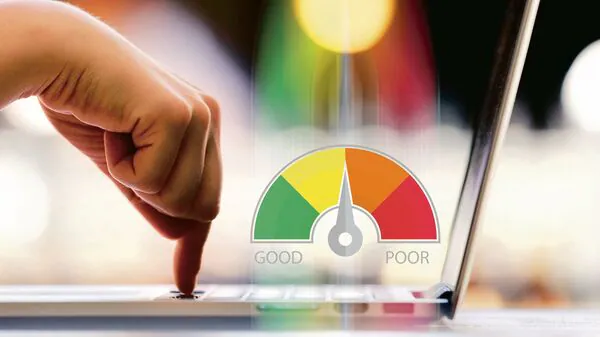
Introduction
In today’s digital and credit-driven economy, your credit score has become a financial passport. Whether you’re applying for a personal loan, car loan, home mortgage, or even a credit card, your credit score plays a pivotal role in the approval process.
In 2025, lenders are becoming increasingly data-driven, and a good credit score doesn’t just help you get approved faster—it also helps you save money through lower interest rates. This blog will explain what a credit score is, how it’s calculated in India, why it matters more than ever, and actionable tips to improve it.
What is a Credit Score?
A credit score is a 3-digit number that reflects your creditworthiness. It ranges from 300 to 900, with higher numbers indicating better credit health.
In India, the most widely used credit score is generated by CIBIL (Credit Information Bureau India Limited), but other bureaus like Experian, CRIF Highmark, and Equifax also provide scores.
Credit Score Ranges:
- 750 – 900: Excellent (eligible for best loan offers)
- 700 – 749: Good (eligible with standard rates)
- 650 – 699: Average (higher risk, fewer approvals)
- 300 – 649: Poor (high rejection rate or high interest)
Why Credit Score Matters in 2025
As fintech, neobanks, and instant loan platforms grow in India, your credit score is often the first filter used to assess your financial health.
Situations Where Your Credit Score Is Crucial:
- Loan applications (home, car, personal, business)
- Applying for a credit card
- Buying electronics or gadgets on EMI
- Getting low-interest rates
- Rental agreements or job background checks
Even if you never plan to borrow, a good credit score ensures financial flexibility in emergencies.
How is Credit Score Calculated?
The credit score is calculated based on five key factors:
| Component | Weightage |
|---|---|
| Payment History | 35% |
| Credit Utilization Ratio | 30% |
| Length of Credit History | 15% |
| Type of Credit Used | 10% |
| Credit Inquiries | 10% |
1. Payment History
Have you paid your EMIs and credit card dues on time? Even one missed or delayed payment can drastically reduce your score.
2. Credit Utilization Ratio
This is the percentage of your credit limit you’re using. Keeping it under 30% is ideal.
Example: If your card limit is ₹1,00,000, use no more than ₹30,000 regularly.
3. Length of Credit History
Older accounts reflect stability. The longer your history, the better the score.
4. Types of Credit
A healthy mix of secured (home/car loan) and unsecured (credit card/personal loan) credit is preferred.
5. Number of Hard Inquiries
Frequent loan/credit card applications lower your score due to multiple credit pulls.
How to Check Your Credit Score for Free in India
As per RBI guidelines, each bureau must offer one free credit report per year.
Platforms to Check Score:
You can also receive email reminders and credit alerts by signing up.
7 Proven Ways to Improve Your Credit Score
Improving your credit score isn’t instant—it’s a process. But consistent, responsible behavior can significantly boost your score over 6–12 months.
1. Pay EMIs and Bills on Time
Set auto-debit mandates for loans and credit cards. Even a 5-day delay can cost 50+ points.
2. Keep Credit Utilization Below 30%
Split usage across multiple cards or increase your credit limit (but don’t use it).
3. Don’t Close Old Credit Cards
The older the credit line, the better your history looks. Keep old cards active with small transactions.
4. Avoid Multiple Loan Applications at Once
Each application triggers a hard inquiry. Too many in a short period hurt your score.
5. Diversify Your Credit Mix
If you’ve only used credit cards, consider taking a small secured loan or consumer durable loan.
6. Dispute Errors in Credit Report
Sometimes incorrect data pulls your score down. Dispute them via the bureau’s online portal.
7. Use Credit-Building Tools
Use credit-builder cards, or small personal loans from NBFCs and repay them on time to build history.
Common Credit Score Myths (Debunked)
❌ Checking your score reduces it
✅ False – Only hard inquiries do. Checking it yourself is a soft inquiry and doesn’t impact your score.
❌ Earning more improves your score
✅ False – Your income is not a factor. Credit behavior is.
❌ No loans = good credit score
✅ False – Having no credit history can actually hurt your chances. You need to show responsible borrowing.
Conclusion
Your credit score is one of the most important financial numbers in your life. In 2025, as India becomes more digitally and credit-oriented, maintaining a high score isn’t just useful—it’s essential. Whether you’re planning a big purchase, applying for a credit card, or just want to be financially prepared, improving your credit score should be high on your priority list.
Start today by checking your credit report, correcting errors, paying dues on time, and using your credit wisely. With consistent effort, you’ll build a strong credit profile that opens financial doors in the future.
